News
Cybercrimes Act Will Be Amended, Says FG
The Federal Government has stated that the Federal Ministry of Justice is committed to pursuing the amendment of the Cybercrimes Act, which many lawyers, journalists and activists have considered repressive, unconstitutional and illegal.
This was stated yesterday by Mr Terlumun George Tyendezwa, Head, Cybercrimes Prosecution Unit, Federal Ministry of Justice, at a Media Interactive Session on the ‘Constitutionality and Legality of the Cybercrimes Act in Nigeria’, organized by the Socio-Economic Rights and Accountability Project (SERAP) in collaboration with the National Endowment for Democracy (NED), USA.
At the Media Interactive Session held in Ikeja, Lagos, Mr. Tyendezwa said: “The Cybercrimes Act is not perfect. One of the reasons why I am here is that I have an open door; we want to engage on the Act. We are interested in engaging with all stakeholders in the Justice sector. Whatever is not useful, we can seek amendment on this. From the point of passage, we as the operators knew that there were things that need to change. We are presently collating memoranda on amendment of the Act. But amendment takes time and cost money.”
He also said: “We know the importance of law as a social driver. The office of the Attorney General of the Federation and Minister of Justice continues to place high value on entrenched fundamental human rights and engaging with all stakeholders on the Cybercrimes Act is one of our approaches.”
Earlier at the meeting, a group of lawyers, journalists, activists and other stakeholders unanimously declared the Nigeria’s Cybercrimes Act as “repressive, oppressive and unconstitutional. The Act should immediately be repealed or dropped, as many of its provisions blatantly offend the rights to freedom of expression, association and media freedom.”
The group also called on the next Attorney-General of the Federation and Minister of Justice to “prioritise challenging in court the constitutionality and legality of the Cybercrime Act, which is antithetical to respect for freedom of expression including online and the government’s commitment to fight grand corruption.”
Others included: Mr. Terlumun George, Federal Ministry of Justice, Cybercrimes Act, Nurudeen Ogbara former Chairman Nigerian Bar Association, Ikorodu, Folake Falana, Malachy Ugwummadu, president, Committee For the Defence of Human Rights (CDHR) and representatives of BudgIT, CODE, Heda Resources, Enough is Enough Nigeria (EiE), Cleen Foundation, Federal Civil Service Pension, Community Life Project, journalists, lawyers, activists and other stakeholders.
Earlier, Mr Tayo Oyetibo, SAN in his paper titled: The Constitutionality and Legality of the Cybercrimes Act in Nigeria stated: “the supremacy of the constitution over every other law is an immutable principle of Nigerian constitutional law derived from the provisions of section 1(3) of the constitution itself. In creating criminal offences, section 24(1) of the Cybercrimes Act uses words that are entirely subjective in meaning to describe the actus Reus elements of the offences, despite the fact that the actus reus of an offence ought to be capable of objective and not subjective definition.”
According to him, “Worse still, the Cybercrimes Act makes no effort to give certainty to the meanings of any of the words used in its section 24(1) by defining them anywhere in the Act, which means that only judicial definitions can be given to those words in any case where a person is charged with an offence under section 24(1) of the Act.”
The paper read in part: “In the context of the constitutionally guaranteed right of citizens to freedom of speech under the Nigerian constitution, there is the pressing question of whether the Cybercrimes Act is fit for the purpose pursuant to which it was enacted, particularly in view of the provisions of its section 24(1)?”
“It would appear that the answer to this poser is in the negative, which means that it is imperative for deliberate steps to be taken to remedy the situation, particularly against the backdrop of widespread complaints against the deliberate misuse and abuse of the Cybercrimes Act against certain categories of persons in Nigeria.”
“In this regard, this is not a matter in which long winding technical recommendations are necessary. The simple recommendation is that section 24(1) be entirely deleted from the Cybercrimes Act, due to its apparent irreconcilability with the provisions of section 36(12) and 39(1) of the constitution.”
“From a practical standpoint, it means that a person charged with an offence under section 24(1) of the Cybercrimes Act will involuntarily be playing the lottery of judicial interpretation of the words and phrases used in that section. This is because virtually all of the words used in section 24(1) of the Act are of such personal character that, any attempt to define them is entirely subject to the whims and caprices of two different sets of people- complainants and judges.”
“It is impossible for a person to be convicted of an offence under section 24(1) of the Cybercrimes Act without conjecture or inference by the court as to the meanings of the words used in that section. Worse still, such conjecture or inference can only be imputed by the court at the point of delivering judgment in the matter, at which point the accused person will not have had the opportunity to be heard by the court as to the court’s interpretation of the meanings of those words and phrases.”
“Apart from the above, every person is constitutionally guaranteed the right to freedom of expression, including freedom to hold opinions and to receive and impart ideas and information without interference under section 39(1) of the constitution. A scenario in which a person is bound by section 24(1) of the Cybercrimes Act to second-guess the exercise of his right to freedom of expression under section 39(1) of the constitution is certainly not one contemplated by the constitution in any way.”
“Freedom of speech and freedom of assembly are part of democratic rights of every citizen; our legislature must guard these rights jealously as they are part of the foundation upon which the government itself rests.”
“It is clear that section 24(1) of the Cybercrimes Act portends great danger for every person in Nigeria. This is by reason of the fact that at the time of issuing any communication in exercise of the right to freedom of expression, it is impossible for a person to determine whether or not an offence is being committed under the Cybercrimes Act. Surely, this is the exact scenario that the framers of the constitution sought to legislate against by the inclusion of the express provisions that are sections 36(12) and 39(1) of the constitution.”
“24(1) is a tool that readily lends itself to abuse and misuse by those in authority against freedom of expression in Nigeria. This is particularly because the Cybercrimes Act contains no safeguards whatsoever to the enforcement of section 24, which carries with it severe criminal sanctions.”
“The Cybercrimes Act is already in desperate need of a significant overhaul to ensure that it does not unwittingly and unconstitutionally place citizens at the unfortunate risk of the luck of a criminal draw.”
News
You Failed Nigerians, Falana Slams Power Minister
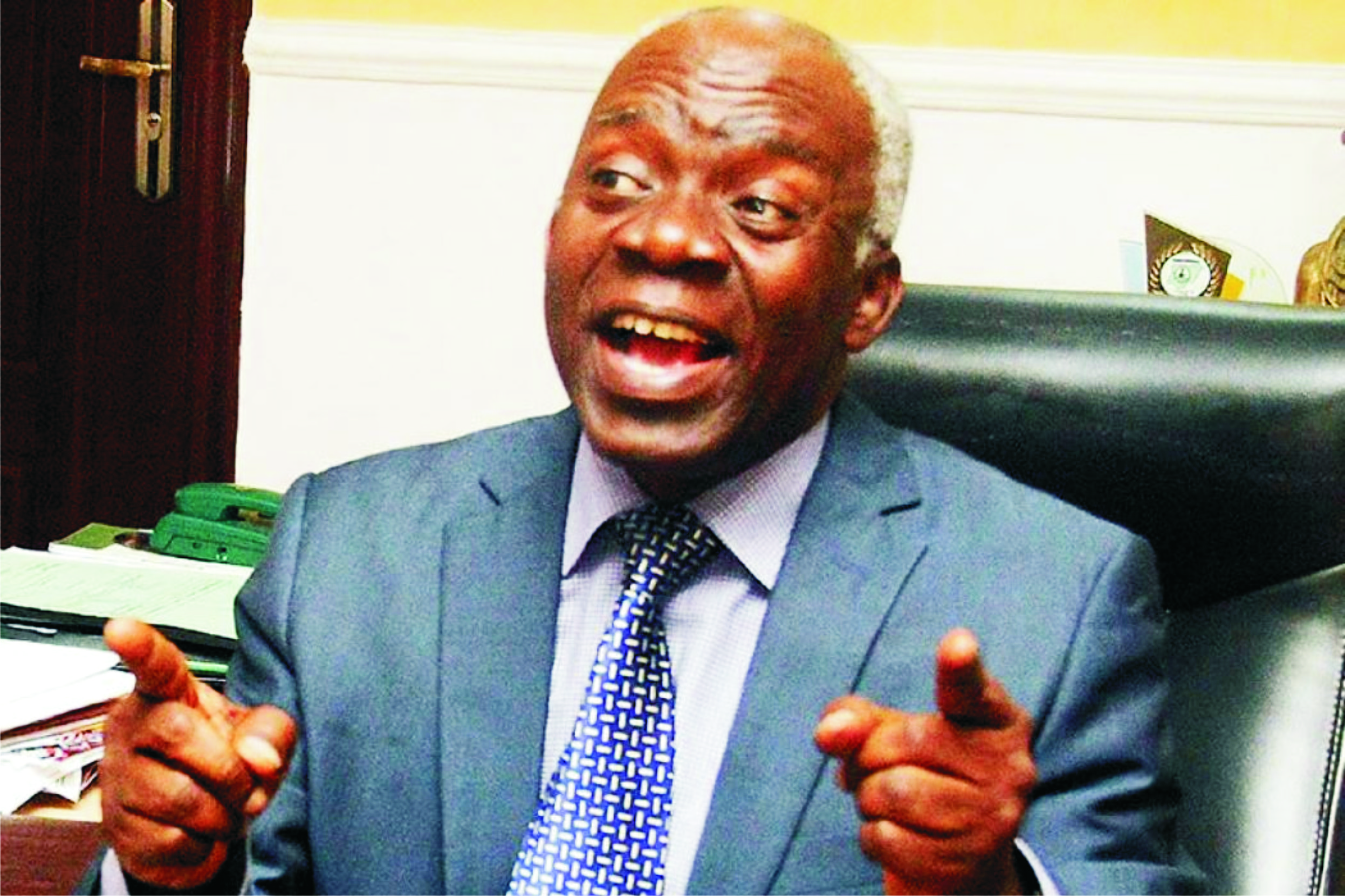
Human rights lawyer, Femi Falana, SAN, has passed a vote of ‘no confidence’ in the Federal Government, saying that the Minister of Power, Adebayo Adelabu, has failed Nigerians.
Falana was reacting to Adelabu’s appearance before the Senate to defend the increase in the electricity tariff and what Nigerians would pay on Monday.
The rights activists also claimed that the move is a policy imposed on the Nigerian government by the International Monetary Funds (IMF) and the World Bank.
Speaking on the Channels TV show on Monday night, Falana said, “The Minister of Power, Mr Adebayo Adelabu has failed to address the question of the illegality of the tariffs.
“Section 116 of the Electricity Act 2023 provides that before an increase can approved and announced, there has to be a public hearing conducted based on the request of the DISCOS to have an increase in the electricity tariffs. That was not done.
“Secondly, neither the minister nor the Nigeria Electricity Regulatory Commission has explained why the impunity that characterised the increase can be allowed.”
Falana also expressed worry over what he described as impunity on the part of the Federal Government and electricity regulatory commission.
““I have already given a notice to the commission because these guys are running Nigeria based on impunity and we can not continue like this. Whence a country claims to operate under the rule of law, all actions of the government, and all actions of individuals must comply with the provisions of relevant laws.
“Secondly, the increase was anchored on the directives of the commission that customers in Band A will have an uninterrupted electricity supply for at least 20 hours a day. That directive has been violated daily. So, on what basis can you justify the increase in the electricity tariffs”, Falana queried.
The human rights lawyer alleged that the Nigerian government is heeding an instruction given to her by the Bretton Wood institutions.
He alleged, “The Honourable Minister of Power is acting the script of the IMF and the World Bank.
“Those two agencies insisted and they continue to insist that the government of Nigeria must remove all subsidies. Fuel subsidy, electricity subsidy and what have you; all social services must be commercialised and priced beyond the reach of the majority of Nigerians.
“So, the government cannot afford to protect the interest of Nigerians where you are implementing the neoliberal policies of the Bretton Wood institutions.”
The Senior Advocate of Nigeria accused Western countries led by the United States of America of double standards.
According to him, they subsidize agriculture, energy, and fuel and offer grants and loans to indigent students while they advise the Nigerian government against doing the same for its citizens.
Following the outrage that greeted the announcement of the tariff increase, Adelabu explained that the action would not affect everyone using electricity as only Band A customers who get about 20 hours of electricity are affected by the hike.
Falana, however, insisted that neither the minister nor the National Electricity Regulatory Commission (NERC) has justified the tariff increase.
The senior lawyer said that Nigerian law gives no room for discrimination against customers by grading them in different bands.
He insisted that the government cannot ask Nigerians to pay differently for the same product even when what has been consistently served to them is darkness.
Following the outrage over the hike, Adelabu on Monday appeared at a one-day investigative hearing on the need to halt the increase in electricity tariff by eleven successor electricity distribution companies amid the biting economic situation in Nigeria.
However, Falana said that nothing will come out of the probe by the Senate.
He advised that the matter has to be taken to court so that the minister and the Attorney General of the Federation can defend the move.
News
1.4m UTME Candidates Scored Below 200 -JAMB
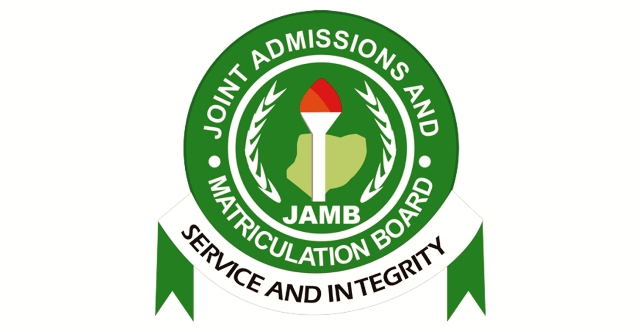
The Joint Admissions and Matriculation Board (JAMB) on Monday, released the results of the 2024 Unified Tertiary Matriculation Examination, showing that 1,402,490 candidates out of 1,842,464 failed to score 200 out of 400 marks.
The number of candidates who failed to score half of the possible marks represents 78 per cent of the candidates whose results were released by JAMB.
Giving a breakdown of the results of the 1,842,464 candidates released, the board’s Registrar, Prof. Ishaq Oloyede, noted that, “8,401 candidates scored 300 and above; 77,070 scored 250 and above; 439,974 scored 200 and above while 1,402,490 scored below 200.”
On naming the top scorers for the 2024 UTME, Oloyede said, “It is common knowledge that the Board has, at various times restated its unwillingness to publish the names of its best-performing candidates, as it considers its UTME as only a ranking examination on account of the other parameters that would constitute what would later be considered the minimum admissible score for candidates seeking admission to tertiary institutions.
“Similarly, because of the different variables adopted by respective institutions, it might be downright impossible to arrive at a single or all-encompassing set of parameters for generating a list of candidates with the highest admissible score as gaining admission remains the ultimate goal. Hence, it might be unrealistic or presumptive to say a particular candidate is the highest scorer given the fact that such a candidate may, in the final analysis, not even be admitted.
“However, owing to public demand and to avoid a repeat of the Mmesoma saga as well as provide a guide for those, who may want to award prizes to this set of high-performing candidates, the Board appeals to all concerned to always verify claims by candidates before offering such awards.”
Oloyede also noted that the results of 64,624 out of the 1,904,189, who sat the examination, were withheld by the board and would be subject to investigation.
He noted that though a total of 1,989,668 registered, a total of 80,810 candidates were absent.
“For the 2024 UTME, 1,989,668 candidates registered including those who registered at foreign centres. The Direct Entry registration is still ongoing.
“Out of a total of 1,989,668 registered candidates, 80,810 were absent. A total of 1,904,189 sat the UTME within the six days of the examination.
“The Board is today releasing the results of 1,842,464 candidates. 64,624 results are under investigation for verification, procedural investigation of candidates, Centre-based investigation and alleged examination misconduct”, he said.
Oloyede also said the Board, at the moment, conducts examination in nine foreign centres namely: Abidjan, Ivory Coast; Addis Ababa, Ethiopia; Buea, Cameroon; Cotonou, Republic of Benin; London, United Kingdom; Jeddah, Saudi Arabia; and Johannesburg, South Africa.
“The essence of this foreign component of the examination is to market our institutions to the outside world as well as ensuring that our universities reflect the universality of academic traditions, among others. The Board is, currently, fine-tuning arrangements for the conduct of the 2024 UTME in these foreign centres,” he explained.
News
Ex-CBN Director Admits Collecting $600,000 Bribe For Emefiele
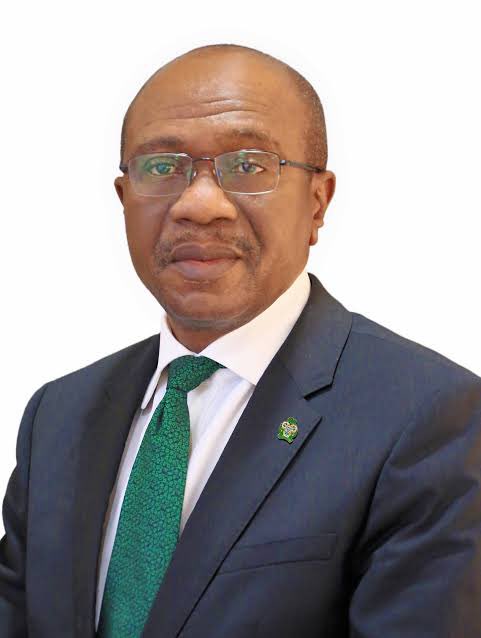
A former Director of Information Technology with the Central Bank of Nigeria, John Ayoh, has alleged that he collected on behalf of the former governor of the apex bank, Godwin Emefiele, a sum of $600,000 in two installments from contractors.
Ayoh, the second witness of the Economic and Financial Crimes Commission (EFCC), disclosed this on Monday while recounting instances where he facilitated the delivery of money to Emefiele, claiming it was for contract awards.
Under cross-examination at the Ikeja Special Offences Court in Lagos by the defence counsel, Olalekan Ojo (SAN), Ayoh admitted to facilitating the alleged bribery under pressure.
The embattled former governor of the apex bank is having many running legal battles both in Abuja and Lagos and is being tried by the EFCC at the Special Offences Court over alleged abuse of office and accepting gratification to the tune of $4.5 billion and N2.8bn.
He was arraigned on April 8, 2024, alongside his co-defendant, Henry Isioma-Omoile, on 26 counts bordering on abuse of office, accepting gratifications, corrupt demand, receiving property, and fraudulently obtaining and conferring corrupt advantage.
Emefiele’s defence, however, challenged the court’s jurisdiction over constitutional matters, urging the quashing of counts one to four and counts eight to 24 against him.
Ayoh, who was led in evidence by the EFCC prosecution counsel, Rotimi Oyedepo (SAN), said the first money he collected on Emefiele’s behalf was $400,000 which his assistant, John Adetola, came to collect at his house in Lekki, Lagos State.
He further told the court that the second bribe of $200,000 was collected at the headquarters of CBN, at the Island office.
He said the money was brought in an envelope, adding that when the delivery person, Victor, was on the bank’s premises, he contacted Emefiele, who insisted on receiving the package directly from Ayoh without involving third parties.
He said when he went to deliver the package, he saw many bank CEOs waiting to see the former apex bank governor.
When questioned if he had ever been involved in any criminal activity, he responded in the negative but admitted that he had facilitated the commission of crime unknowingly.
“I believe I did admit in my statement that I was forced to commit the crime. I don’t know the exact word I used in my statement, but I said we were all forced with tremendous pressure to bend the rules,” he said.
When asked if he opened the envelopes he collected on the two occasions and counted the money to confirm the amount, he was negative in his reply, adding that he did also write in his statement that the money was given to influence the award of contracts.
On whether the EFCC arrested him, the witness said he was invited on February 20, 2024, and returned home after he was granted bail.
Earlier, Emefiele asked the court to quash counts one to four and counts eight to 24 against him, as the court lacks the jurisdiction to try him.
Speaking through his counsel, Ojo, he said counts one to four were constitutional matters, which the court lacked the jurisdiction to determine.
In his argument, citing Sections 374 of the Administration of Criminal Justice Act and 386(2), the defence counsel told Justice Rahman Oshodi that Emefiele ought not to be arraigned before the court on constitutional grounds.
He, therefore, urged the court to resolve the objection on whether the court had the jurisdiction to try the case or not.
The second defendant’s counsel, Kazeem Gbadamosi (SAN), also relied on the submissions of Ojo.
The EFCC counsel, Oyedepo, however, objected, as he asked the court to disregard the decision of the Court of Appeal relied upon by Ojo, saying that the Court of Appeal could not set aside the decision of the Supreme Court on any matter.
Ruling on the submissions of the counsel, Justice Oshodi said he would give his decision on jurisdiction when he delivered judgment as he adjourned till May 3.
He also directed the EFCC to serve the defence proof of evidence on witness number six and his extrajudicial statement.
-

 Niger Delta2 days ago
Niger Delta2 days agoGroup Dismisses Call For NDDC MD’s Sack … Passes Confidence Vote.
-
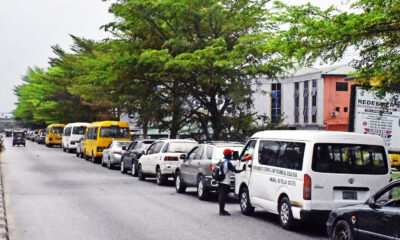
 Business3 days ago
Business3 days agoFuel Scarcity: IPMAN threatens shutdown over bridging claims
-
Niger Delta3 days ago
Court Exonerates Ekpeye Monarch, 42 Others From Murder Of Ahoada DPO
-

 Niger Delta2 days ago
Niger Delta2 days agoIbom Air Reiterates Commitment To Healthcare Delivery
-
News3 days ago
Fubara Hails Finidi’s Choice As Super Eagles’ Head Coach
-
News3 days ago
Electricity tariff hike: NBA threatens lawsuit against DisCos
-
News3 days ago
NANS Threatens Nationwide Protest Over Fuel Scarcity
-
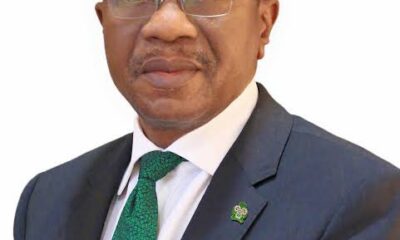
 News3 days ago
News3 days agoEx-CBN Director Admits Collecting $600,000 Bribe For Emefiele

